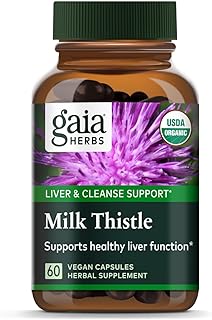When someone transitions from male to female, choosing the right testosterone blocker is a big decision that can greatly affect their physical and emotional health. The process of transitioning can be overwhelming, so it’s important to think carefully about a few key things before choosing a blocker. You should understand how it works, the potential side effects, and how it might affect your long-term health and hormones. These factors are crucial in helping you find the best blocker for your specific needs. This article explores the important considerations when choosing a testosterone blocker for MtF individuals, highlighting the details that require careful thought and informed decision-making.
See our guide to the best testosterone blocker for mtf.
Effectiveness in reducing testosterone levels
When transitioning from male to female (MTF), choosing the right testosterone blockers is important. These blockers help lower testosterone levels and are key to changing a person’s body. Selecting high-quality blockers that work well can make a big difference in how successful the transition is. Doing research and talking to healthcare providers is essential to make sure the blockers chosen are right for individual needs and health.
Using trustworthy testosterone blockers can bring a sense of security and strength during the transition. Picking blockers known for lowering testosterone effectively can help people feel more confident and calm as they go through the process. Knowing how strong and dependable a testosterone blocker is can help achieve the desired changes and make the transition smoother. It’s important to understand that when choosing testosterone blockers for MTF transition, it’s not just about reducing testosterone levels; it’s about discovering and being true to oneself.
Side effects and potential risks
When MTF individuals are considering buying testosterone blockers, they should be aware of the possible side effects and risks. These medications are important for transitioning, but they also have drawbacks. Side effects like tiredness, mood swings, and lower sex drive can have a big impact on someone’s life. There are also risks of liver damage, blood clots, and heart problems with long-term use of testosterone blockers. It’s important for people thinking about taking these medications to think about the advantages and disadvantages and talk to healthcare professionals before making a decision.
Deciding whether to get testosterone blockers for MTF transition is a personal choice that should be thought about carefully. Knowing the possible risks and side effects can help people handle their transition better and be prepared for any difficulties. It’s important to have regular health check-ups, keep track of hormone levels, and talk openly with healthcare providers to address any issues right away. While testosterone blockers can be helpful for transitioning, understanding the risks is key to staying healthy throughout the process.
Affordability and insurance coverage
Affordable testosterone blockers are essential for MTF individuals, but many struggle to access them due to cost and lack of insurance coverage. This can make it difficult for transgender individuals to get the healthcare they need. Some insurance plans cover these medications, but the process can be complicated, leading to delays or denials. As a result, many MTF individuals end up paying a lot of money out of pocket to get the treatment they need.
Insurance providers need to do more to make testosterone blockers affordable for transgender individuals. These medications should be seen as a basic need, not a luxury. By making them more accessible and affordable through insurance coverage, we can help MTF individuals get the care they need without worrying about the cost. It is important for insurance companies to support transgender individuals by offering inclusive coverage options that prioritize their well-being and dignity. This can help ensure that all MTF individuals have equal access to necessary healthcare services.
Dosage and administration requirements
When buying testosterone blockers for MTF individuals, it’s important to understand how much to take and when to take it to get the best results and stay safe. It’s a good idea to talk to a healthcare provider who knows about transgender care to figure out the right dose based on your health and transition goals. Even though it might seem easy to do it yourself, getting advice from a doctor is important for creating a plan that fits your needs and reduces any risks.
Following the prescribed dose and schedule closely is crucial to avoid negative effects and keep your hormone levels in check. Being consistent with taking testosterone blockers helps manage your levels and supports the changes you want during your transition. By staying in touch with your healthcare team and getting regular check-ups, you can feel more confident throughout your hormone therapy journey and gain the knowledge to improve your overall well-being and transition experience.
Availability and accessibility
Access to testosterone blockers is essential for MTF individuals on their journey. These medications should be easy to get without barriers. Without easy access, transitioning can be harder and have negative effects on mental and physical health. It’s important for those who need these medications to be able to get them easily.
Everyone should have the right to access testosterone blockers, not just a few. Making it hard to get these medications adds to the challenges faced by transgender people and shows lack of support. Making testosterone blockers available can make transitioning easier and improve quality of life. It allows individuals to live authentically in their true gender.
Conclusion
In summary, using testosterone blockers is an important part of care for transgender people transitioning from male to female. These blockers reduce the effects of testosterone on the body, helping align physical traits with gender identity. This can lead to better mental health and overall well-being. The choice to take testosterone blockers is personal and should involve input from healthcare providers. It’s important to understand the positive role they play in supporting individuals in their journey toward being their true selves.

